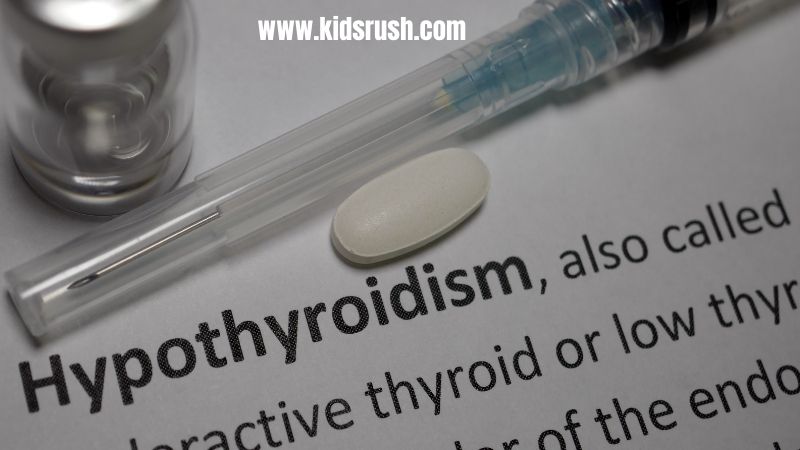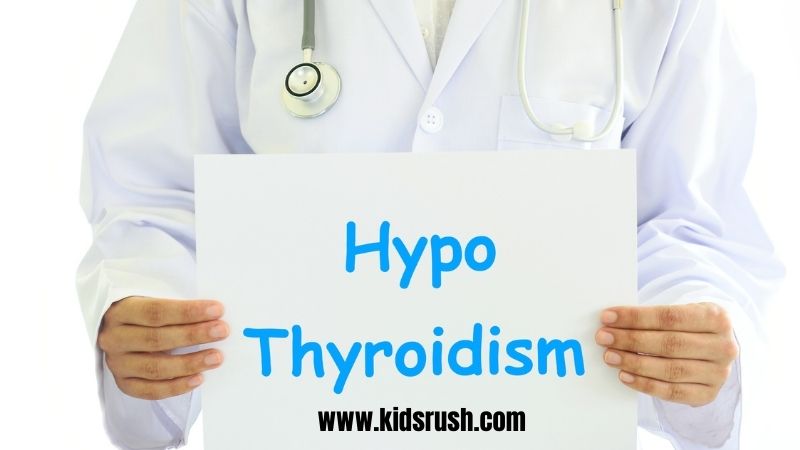Congenital hypothyroidism is a serious disease with no definitive cure. It is crucial to detect it early to administer a medication that prevents serious consequences in the child’s development.
There is congenital hypothyroidism when a baby cannot produce normal amounts of thyroid hormone at birth. Sometimes this means a decrease in the production of the substance, and other times, there is nothing of it.
The word congenital implies that the condition is present from the moment of birth, so the baby is born with deficient activity of the thyroid gland that comes from the mother’s womb. The statistics show that 1 in 3 000 to 4 000 children suffering from the disease.
Congenital hypothyroidism is linked to preventable mental retardation. This is because the thyroid hormone plays a very important role in brain development in children. So treatment must be early to prevent intellectual disabilities.
About the thyroid gland

The thyroid gland is an organ of vital importance for the development and functioning of the body. It is located on the neck, in the front, over the junction with the clavicle. It is responsible for secreting hormones to promote the energy metabolism of cells.
The thyroid is shaped like a butterfly and plays a hormonal role. She is in charge of regulating processes such as the burning of calories, for example. Their most frequent problems are the enlargement of the size that we call goiter, hyperthyroidism that is the excess in the hormonal production, and hypothyroidism that is the deficiency of function.
In the case of congenital or neonatal hypothyroidism, if it is not detected and treated in time, it can cause irreversible neurological disorders and growth problems. It is a condition that, in most cases, will require lifelong medical treatment.
Symptoms of congenital hypothyroidism

One of the signs that could alert you to the presence of congenital hypothyroidism in a newborn is jaundice, which is the yellowish color that occurs in the skin and eyes. If this condition is present and, above all, if it is prolonged, the pediatrician should be consulted without delay.
Another sign that suggests the presence of the disease is a hoarse or weak cry, which comes from the pressure exerted by the gland on the area of the vocal cords. This hinders the movement of air through the region and, therefore, the formation of sounds.
Children with congenital hypothyroidism have excessive sleepiness and lethargy. They respond more slowly to stimuli because cellular metabolism is operating at a slower speed. This results in a poor diet due to listlessness and asthenia.
The face of these small patients is often swollen, which also implies an enlargement of the tongue, which occupies more space in the oral cavity. The situation also affects diet, along with digestive changes that are often constipation.
The muscle tone is greatly diminished in them. Pediatric physicians usually recognize the lack of reflexes in the lower limbs and the arrest of posture development before the age of two years.
At the time of birth, babies do not usually have clear clinical pictures of congenital hypothyroidism. Some data may attract the attention of the pediatrician, such as a posterior fontanelle that is larger than normal.
Possible causes of the condition
Congenital hypothyroidism could be related to late birth. Poor development during pregnancy or the absence of the thyroid gland due to a hereditary defect is known to be possible origins.
Likewise, the location of the gland could be abnormal, placing itself in places that impede its functionality. Whenever the organ is deficient in the production of hormones, or they are unable to carry out their function in peripheral tissues, there will be symptoms.
Some studies link the appearance of this disease with the use of some medications taken by the mother during pregnancy. Another factor of incidence is the lack of iodine in the maternal diet.
In most cases, there is no hereditary component. Therefore, a case of this type in the family does not imply a greater risk of having children with this disease.
Treatments for congenital hypothyroidism
In most cases, congenital hypothyroidism can and should be treated for life. Medicine today does not have a cure and the possibility of preventing it does not go beyond the care of the diet and the control of the medications that are ingested during pregnancy.
This pathology is treated by replacing the hormone that the baby’s body does not produce. The child is given a medication that replaces the missing thyroid hormone, which is usually artificial levothyroxine.
The usual thing is that the doctor orders the use of the medication from the first two weeks of life. This achieves adequate growth and neurodevelopment. It is very important to follow all the instructions since the success and quality of life of the child depend on it.
